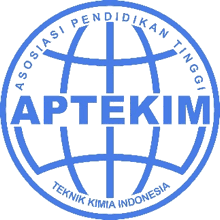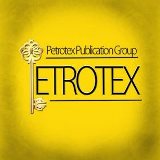Synthesis and Characterization of Metal-Organic Framework as Battery Electrodes
Abstract
Metal organic framework-derived carbons (MOFDCs) are materials with great potential and can be used as electrochemical energy storage because these have a large surface area and pore structure that can be adapted to needs. MOFs have porous crystals in which metal ions or clusters are linked by organic ligands. The purpose of this study was to determine the physical and electrochemical properties of MOF5 synthesized at different temperatures. The MOFs synthesis method which is classified as complicated can be simplified and the use of hazardous solvents can be reduced by means of partial substitution using water solvents. To prepare MOFs can be done in several ways, such as liquid phase epitaxy, supersonic cold spraying, direct gas phase preparation, and interface-assisted synthesis. MOFs have applications in optics, sensing, catalysis, adsorption, and modeling, as well as electrochemical energy storage. Potential application as an interesting electrode material to be studied through the synthesis method. In this study, MOF5 was synthesized at temperatures between 200°C-600°C. To prepare MOF5, zinc nitrate tetrahydrate and acetic acid were dissolved in DMF (N, N-dimethyl formamide). The remaining precipitate (MOF) was immersed three times in DMF and three times in chloroform for 24 hours for each immersion. In general, different MOF5 synthesis affects the microstructure, elemental content, optical properties (transmittance and absorbance), electrical properties, and electrochemical properties
Full Text:
PDFReferences
An, Y., Tan, S., Liu, Y., Zhu, K., Hu, L., Rong, Y., An, Q. 2021 Designs and applications of multi-functional covalent organic frameworks in rechargeable batteries. Energy Storage Materials. 41: 354–379.
Barthel, S., Alexandrov, E. V., Proserpio, D. M., Smit, B. 2018. Distinguishing metal-organic frameworks. crystal growth & design. 18: 1738−1747.
Bennett, T. D., Cheetham, A. K. 2014. Amorphous Metal−Organic Frameworks. Accounts of Chemical Research. 47 (5): 1555−1562.
Boutaybi, M. E., Taleb, A., Touzani, R., Bahari, Z. 2020. Metal-organic frameworks based on pyrazole subunit for batteries applications: A systematic review. Materials Today Proceeding. 31: S96–S102.
Chen, P., Ren, H., Yan, L., Shen, J., Wang, T., Li, G., Chen, S., Cong, X., Xie, J., Li, W. 2019. Metal−organic frameworks enabled high-performance separators for safety-reinforced lithium-ion battery. ACS Sustainable Chemical Engineering. 7: 16612−16619.
Cui, Y., Li, B., He, H., Zhou, W., Chen, B., Qian, G. 2016. Metal−organic frameworks as platforms for functional materials. Accounts of Chemical Research. 49: 483−493.
Choi, D., Lim, S., Han, D. 2021. Advanced metal-organic frameworks for aqueous sodium-ion rechargeable batteries. Journal of Energy Chemistry. 53: 396–406.
Chuhadiya, S., Himanshu, Suthar, D. Patel, S. L., Dhaka, M. S. 2021. Metal-organic frameworks as hybrid porous materials for energy storage and conversion devices: A review. Coordination Chemistry Reviews 446: 214115.
Chen, J., Feng, W., Zhao, W., Shi, Z. 2021. Transition metal phosphide composite with metal-organic framework and carbon nanotubes for high-performance lithium-sulfur batteries. Journal of Alloys and Compounds. 890 (2021): 161794.
Cheng, L., Chen, J., Yan, Y., Zhang, J., Hu, H., Zhang, J., Luo, Y., Chen, Y. Wang, G.,Wang, R. 2021. Metal-organic frameworks derived active functional groups decorated manganese monoxide for aqueous zinc ion battery. Chemical Physics Letters. 778: 138772.
Denisov, G. L., Primakov, P. V., Korlyukov, A. A., Novikov, V. V., Nelyubina, Y. V. 2019. Solvothermal Synthesis of the Metal-Organic Framework MOF-5 in Autoclaves Prepared by 3D Printing. Russian Journal of Coordination Chemistry. 45(12): 836–842.
Ensafi, A. A., Heydari-Soureshjani, E., Taghipour-Jahromi, A. R., Rezaei, B. 2021. Bimetallic metal organic framework-derived for both battery-like supercapacitor (electrolyte study) and hydrogen evolution reaction. Electrochimica Acta. 395: 139192.
Fang, Y., Chen, Y., Zeng, L., Yang, T., Xu, Q., Wang, Y., Zeng, S., Qian, Q., Wei, M., Qinghua, C. 2021. Nitrogen-doped carbon encapsulated zinc vanadate polyhedron engineered from a metal-organic framework as a stable anode for alkali ion batteries. Journal of Colloid and Interface Science. 593: 251–265.
Getachew, N., Chebude Y., Diaz, I., Sanchez-Sanchez, M. 2014. Room temperature synthesis of metal-organic framework MOF-2. Journal of Porous Materials. 21(5): 769–773.
Ingersoll, N., Karimi, Z., Patel, D., Underwood, R., Warren, R. 2019. Metal-organic framework-derived carbon structures for sodium-ion battery anodes. Electrochimica Acta. 297: 129-136.
Jeong, S., Kim, D., Park, J., Shin, S., Kim, H., Jeong, G. H., Moon, D., Moon, H. R., Lah, M. S. 2017. Topology conversions of non-interpenetrated metal−organic frameworks to doubly interpenetrated metal−organic frameworks. Chemistry of Materials. 29(9): 3899−3907.
Kumar, P., Goyal, S. K., Singh, B. P. 2021. Application of bifunctional catalysts and metal-organic frameworks in metal-air batteries for renewable power conversion applications Materials Today Proceeding. 43: 2839–2842.
Li, X., Xiang, Y., Deng, R., Wei, X., Liu, X., Zheng, Q., Lin, D., Song, Y. 2021. Metal-organic frameworks-derived multi-shell copper-cobalt-zinc sulfide cubes for sodium-ion battery anode. Chemical Engineering Science. 425: 131501.
Muthurasu, A., Tiwari, A. P., Chhetri, K., Dahal, B., Kim, H. Y. 2021. Construction of iron-doped cobalt- vanadate- cobalt oxide with metal-organic framework oriented nanoflakes for portable rechargeable zinc-air batteries powered total water splitting. Nano Energy. 88: 106238.
Reddy, R. C. K., Lin, J., Chen, Y., Zeng, C., Lin, X., Cai, Y., Su, C. Y. 2020. Progress of nanostructured metal oxides derived from metal-organic frameworks as anode materials for lithium-ion batteries. Coordination Chemistry Reviews. 420: 213434.
Shi, X., Shan, Y., Du, M., Pang, H. 2021. Synthesis and application of metal-organic framework films. Coordination Chemistry Reviews. 444: 214060.
Shang, H., Jin, D., Hu, L. K. K., Wang, X., Ding, Y., Lin, H., Rui, K., Zhu, J., Huang, W. 2021. Metal-organic framework-derived carbon decorated Ni–Sn nanostructures for ultrastable metal-ion batteries Composites Communications. 25: 100724.
Tan, H., Zhou, Y., Qiao, S. Z., Fan, H. J. 2021. Metal-organic framework (MOF) in aqueous energy devices. Materials Today. 48: 270-284.
Wang, K., Bi, R., Huang, M., Lv, B., Wang, H., Li, C., Wu, H., Zhang, Q. 2020a. Porous cobalt metal−organic frameworks as active elements in battery−supercapacitor hybrid devices. Inorganic Chemistry. 59: 6808-6814.
Wang, X., Ge, L., Lu, Q., Dai, J., Guan, D., Ran, R., Weng, S. C., Hu, Z., Zhou, W., Shao, Z. 2020b. High-performance metal-organic framework-perovskite hybrid as an important component of the air-electrode for rechargeable Zn-Air battery. Journal of Power Sources. 468: 228377.
Wang, S., Huang, F., Zhang, Z., Cai, W., Jie, Y., Wang, S., Yan, P., Jiao, S., Cao, R. 2021. Conductive metal-organic frameworks promoting polysulfides transformation in lithium-sulfur batteries. Journal of Energy Chemistry.
Xie, L. S., Skorupskii, G., Dinca, M. 2020. Electrically conductive metal−organic frameworks. Chemistry Reviews. 120: 8536-8580.
Yang, J., Ma, Z., Gao, W., Wei, M. 2016. Layered structural Co-based MOF with conductive network frames as a new supercapacitor electrode. Chemistry – A European Journal. 23(3): 631 – 636.
Yan, Z., Liu, J., Lin, Y., Deng, Z., He, X., Ren, J., He, P., Pang, C., Xiao, C., Yang, D., Yu, H., Du, N. 2021. Metal-organic frameworks-derived CoMOF-D@Si@C core-shell structure for high-performance lithium-ion battery anode, Electrochimica Acta. 390: 138814.
Zheng, S., Wang, Q., Hou, Y., Li, L., Tao, Z. 2021. Recent progress and strategies toward high-performance zinc-organic batteries. Journal of Energy Chemistry.
Zhou, J., Yu, X., Zhou, J., Lu, B. 2020. Polyimide/metal-organic framework hybrid for high-performance Al - Organic battery. Energy Storage Materials. 31: 58–63.
Zhang, X., Li, G., Zhang, Y., Luo, D., Yu, A., Wang, X., Chen, Z. 2021. Amorphizing metal-organic framework towards multifunctional polysulfide barrier for high-performance lithium-sulfur batteries. Nano Energy. 86: 106094.
Zhou, J., Zhang, G., Luo, J., Hu, Y., Hao, G., Guo, H., Guo, F., Wang, S.,Jiang, W. 2021. A MOFs-derived 3D superstructure nanocomposite as excellent microwave absorber. Chemical Engineering Science. 426: 130725.
Zeng, S., Ye, L., Guo, Y., Gao, Q., Wu, Q., Xu, W. 2021. Cubic metal-organic framework as an electro-catalytic for Li-S batteries. Materials Letter. 297: 129942.
Refbacks
- There are currently no refbacks.




